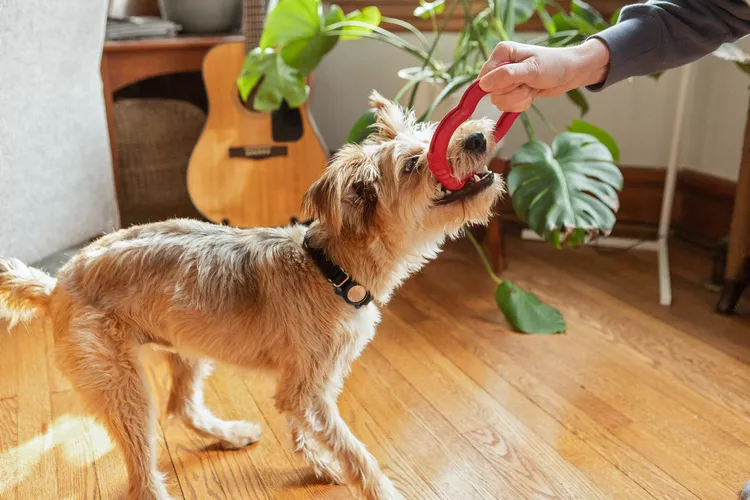
Sudden aggression in your dog can be a scary situation for any pet parent. If your adult dog has been with you for a while, you can usually predict their behavior in various types of situations—and you don't expect them to become irritable. If your happy, loving dog suddenly exhibits aggressive behavior for no obvious reason, we're here to help.
The key to dealing with this behavioral change is to first try to determine the cause. At the same time, it's important to keep your dog, as well as your human friends, family, other pets, and yourself, safe by seeking the help of your veterinarian right away.
In the meantime, handle the dog in a careful, non-threatening way and take action to manage the aggression until you're able to figure out what's causing it and ideally find a safe, workable solution.
Dog aggression toward people may involve a variety of behaviors such as barking, lunging, snarling, growling, snapping, nipping, and biting. Dogs can also have reactivity on leash, which occurs when they're on walks and may include lunging, pulling, and barking, mostly at other dogs.
It's not normal when a happy dog suddenly exhibits aggressive behavior for no obvious reason. If you take a closer look, always enlisting the help of your vet and a positive reinforcement-based dog trainer, you may be able to figure out the cause of your dog's behavior change.
Fear can elicit sudden behavioral and temperament changes such as aggression. If the aggression is temporary, it might be that your dog is simply reacting to a perceived threat. However, it's still important to figure out why your dog reacted so you can help your dog not react to those situations in the future.
Many common health problems can also affect your dog's personality, and some can be serious. This is especially common as your dog becomes a senior and begins to develop age-related diseases. In some cases, sudden aggression in an older dog may be related to canine cognitive dysfunction or dementia.
If your dog's aggression is accompanied by other symptoms, like hair loss, weight gain, or lethargy, it could be a sign of hypothyroidism. If accompanied by convulsions or rapid mood changes, it could be from seizures. Brain damage to specific areas of the brain from tumors, thyroid issues, and trauma can also result in aggression problems.
An ear infection could be the culprit if your dog suddenly becomes aggressive in the presence of loud noises. If eating makes your dog grumpy, a dental issue may be the cause.
An injury could be the source of your dog's sudden aggression, and something you might not have realized your dog experienced because of their ability to hide pain. To explore this possibility, start with a cursory physical exam. Look for swelling, cuts, torn paw pads, insect stings, or tender spots. Anything that looks out of the ordinary could be hurting your dog and causing aggression.
Check the inside of your dog's mouth (if you feel safe doing so) to see if a foreign object may be causing the aggression. It might be a daunting prospect if the dog is feeling snappy, but the problem could be something as simple as a piece of food, toy, or stick caught in your dog's teeth. If your dog threatens you in any way, though, leave the oral exam up to your veterinarian.
Take note of any other symptoms, such as vomiting, diarrhea, loss of appetite, and lethargy, and write this information down so you can share it with your veterinarian.
Working to stop your dog's sudden aggression is very important for both you and your dog's overall happiness. Start with ruling out health issues, then enlist the help of a professional to help you pinpoint the cause of the aggression and work to overcome it.
The vet will discuss your dog's medical and behavioral history and perform a complete physical examination. The goal is to first rule out injuries and other medical problems. Blood and urine tests may be necessary to assess your dog's blood cell counts and organ function. Radiographs may also be needed to locate the source of the problem.
If your vet is unable to find a medical issue, seek the assistance of a certified canine behaviorist. An animal behavior professional can help you work with your dog using techniques such as behavior modification, conditioning, and desensitization and can also help you decide whether the risk of living with your dog is too great and euthanasia is justified.
While you're working through an aggression issue with your dog, it's best to limit exposure to strangers, other dogs, or young children. A no-visitor and no-petting rule is best. Also, don't leave your dog unattended, and keep them on a leash at all times while you're on walks, in a park, or anywhere else. It's not worth risking a dog bite or potential scare from your dog while you work through aggression and reactivity.

75 Unisex Cat Names
Our gender neutral cat names perfect for your feline friend, with a diverse selection of fun and inclusive options to fit your pet's disposition.
Why Does My Cat Stink?
Is your cat stinky? Find out about the causes of bad odors in cats and when it is something to be concerned about. Learn how to help your stinky cat.
Signs of Rabies in Cats
Rabies is a fatal and contagious virus that can affect cats. Learn about the signs of rabies in cats and what to do about them.
Can Cats Eat Dog Food?
Can cats eat dog food? In small amounts, it's unlikely to be a problem, but long-term feeding of dog food to cats can cause health issues and malnutrition.
Exploring the Different Types of Pet-Friendly Beaches
Are you looking for pet-friendly beaches? Learn about the different types of pet-friendly beaches, their locations, and tips for visiting them with your pet.
Pulled Muscles in Dogs
A pulled muscle is one of the most common injuries seen in dogs. What can you do if your dog pulls a muscle and how can you prevent it?
Fibrosarcoma in Cats
Fibrosarcomas are potentially fatal soft tissue tumors that can occur in cats. Learn the causes, treatment, and prevention.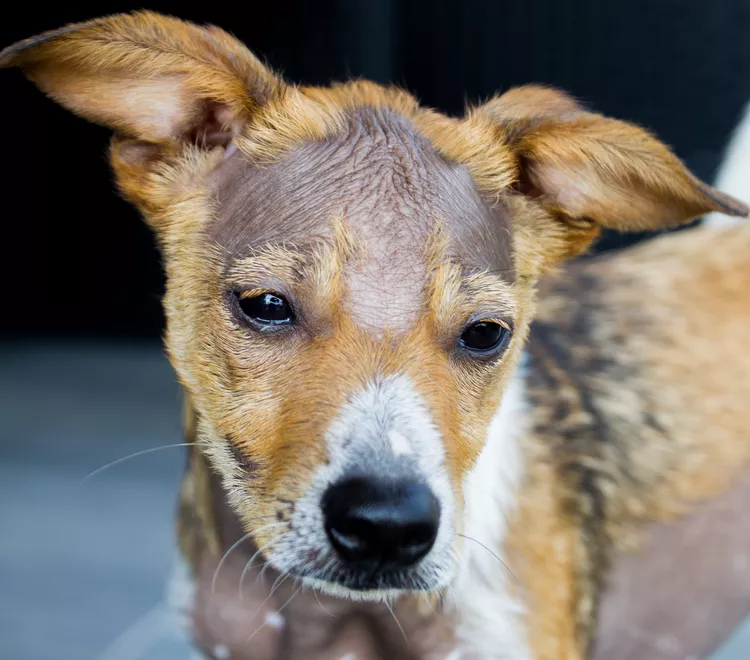
Alopecia in Dogs
Alopecia leads to hair loss and bald spots in dogs. Some breeds may be more at risk. Learn common causes, treatment, and prevention of dog alopecia.
Is Acetaminophen Safe for Dogs?
Acetaminophen is used by humans for pain and fever relief, but is it safe for dogs? Here's what you need to know before giving your dog acetaminophen.
Can Dogs Eat Almonds? Understanding the Risks and Guidelines
Can dogs eat almonds? While a couple likely won't hurt, it's best to avoid feeding your dog this nut. Learn the risks here.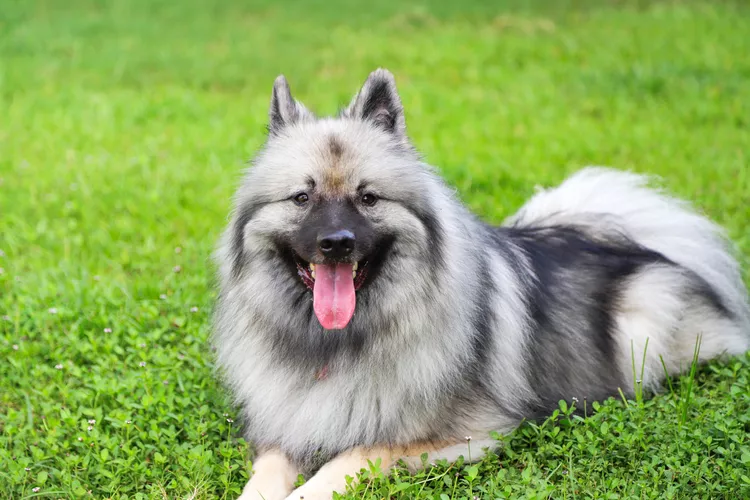
Keeshond: Dog Breed Characteristics & Care
Learn about the keeshond dog, also known as the Dutch Barge Dog. This fluffy spitz breed was bred to guard, but also makes a friendly companion.
Is Rosemary Safe for Dogs?
Rosemary is used both for cooking and as a supplement with many reported health benefits in people, so you may be wondering if it is safe to give to your dog. Rosemary is considered non-toxic for dogs but with some caveats.
7 Hybrid Cats Breeds
Hybrid cat breeds can make appealing pets since they look more exotic than domestic house cats, but they aren't for everyone.
The Best White Cat Breeds to Keep as Pets
Several breeds can result in white cats with long or short hair. Find out the pros and cons of these white cat breeds.
11 Cute Pictures of Ragdoll Cats
Ragdoll cats are known for their beautiful coats and bright, blue eyes. Learn all about the breed, and check out some cute pictures here.
7 Reasons Why Your Cat Eats Paper, and How to Stop It
Is your cat eating paper? Learn why your cat is doing this, and find out how to put a stop to it.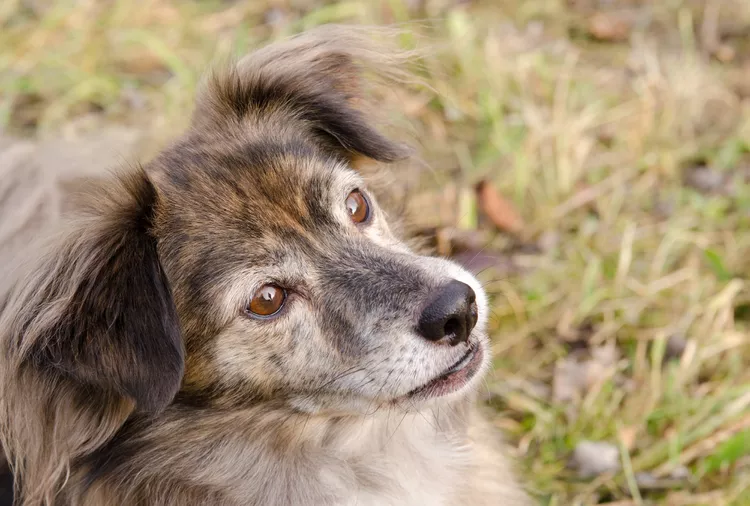
Feist: Dog Breed Characteristics & Care
Feists are small, short-haired dogs developed to hunt squirrels and catch vermin. These high-energy, affectionate pooches make great companion animals.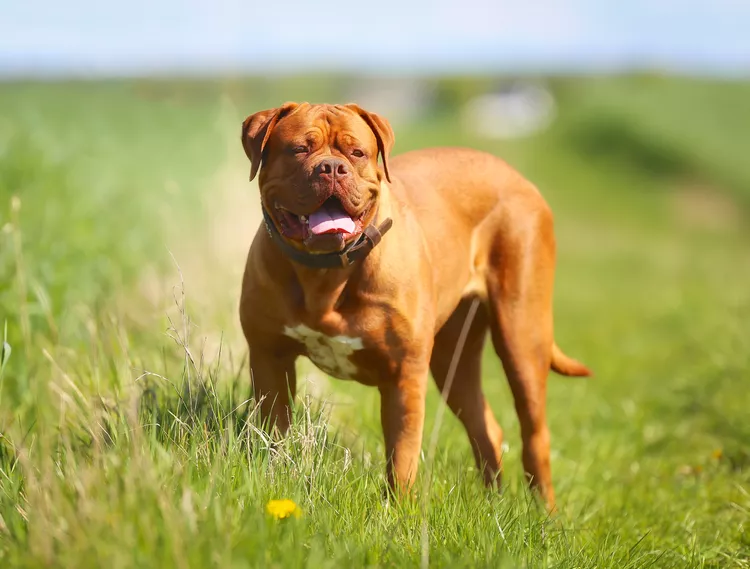
Dogue de Bordeaux (French Mastiff): Dog Breed Characteristics & Care
Learn about the Dogue de Bordeaux, also called the French mastiff. Although large and muscular, they’re known for their calm and gentle personality.
How to Stop Your Dog From Fearing Men
Many dogs have a phobia of men. Learn how to help your dog overcome its fear through desensitization and training while keeping everyone safe.
Why Dogs Eat Poop and How to Stop Them
Is your dog eating poop? Some dogs do this because of stress or illness. Learn how to prevent stool eating, or coprophagia, in dogs.